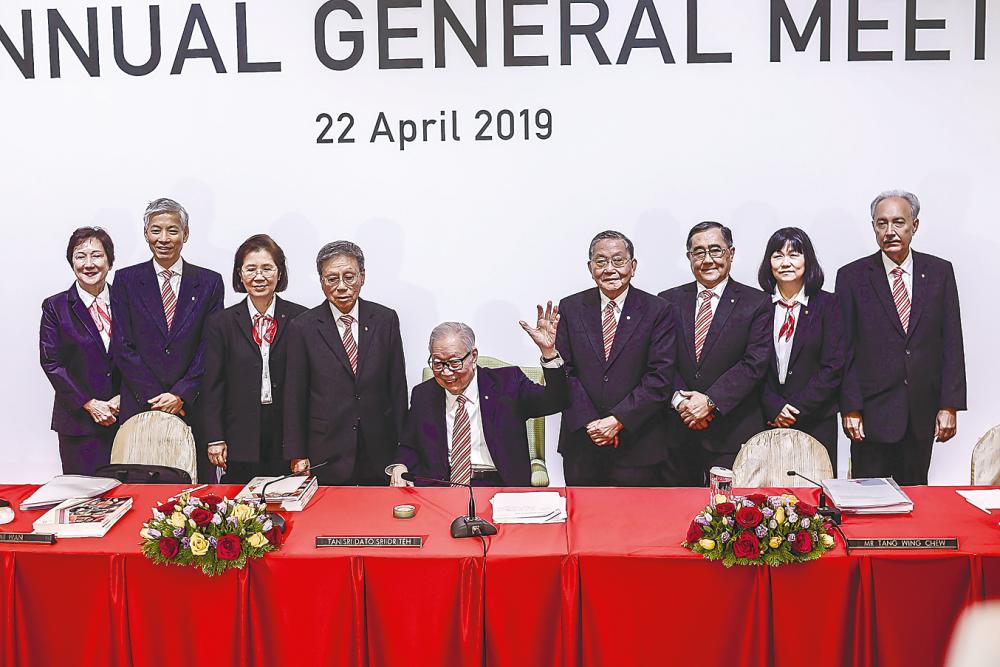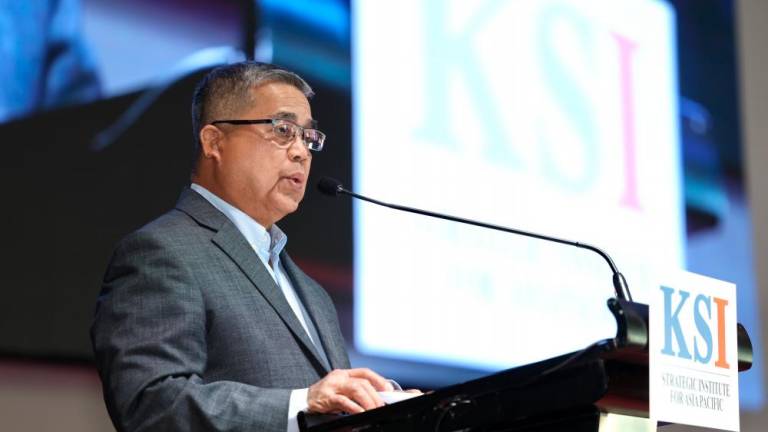KUALA LUMPUR: A reduction in the Overnight Policy Rate (OPR) will have a minimal impact on Public Bank Bhd.
“If there’s any cut, there will be a small temporary impact on our net interest margin, which is insignificant on the overall earnings of the bank,” managing director and CEO Tan Sri Tay Ah Lek said at its AGM today, which was attended by 6,584 shareholders.
He said the temporary impact is due to the time-lag on the repricing of existing deposits. The fixed rate portfolio, which is about 20% of its financing portfolio, will mitigate the downward revision of the OPR. Its variable rate portfolio stood at 78%.
Over the next three years, the group is targeting to approve RM50 billion of housing loans and RM40 billion of SME loans.
In 2018, the group approved over 42,000 housing loan applications amounting to RM16.18 billion in Malaysia, of which 62.3% were for the purchase of affordable properties. Loans approved for SMEs amounted to RM11.05 billion and accounted for 20.7% of the group’s domestic loans portfolio.
With a lending portfolio for residential properties and SMEs amounting to RM110.5 billion and RM69.5 billion respectively as at the end of 2018, the group is the largest domestic financier for these two key segments today.
It achieved loan growth of 4.2% in 2018, while the group’s customer deposits expanded by 6.2%.
“Public Bank is the third largest banking group in Malaysia in terms of asset size and holds the second largest domestic market share in terms of loans and deposits at 17.6% and 16.5% respectively. The group’s net interest margin and capital adequacy ratios are generally in line with the domestic banking average,” said Tay.
Going forward, the bank is planning to invest another RM600 million in the next three years to further enhance ICT infrastructure, digital capability and knowledge.
Over the last three years, Public Bank has invested about RM400 million on IT-related capital expenditure, which includes spending on digital infrastructure. Of this amount, RM90 million was spend specifically on fintech-related initiatives.
On deposit growth, Tay said the group has been consciously balancing between deposit growth and funding cost efficiency to manage interest margin pressure, while ensuring a healthy funding position to support its business growth and in meeting regulatory compliance.
“Going forward, the group will focus on growing its low-cost deposit by tapping on its strong deposit franchise, supported by intensified cross selling activities and enhanced internet banking,” he explained.
As for dividend, the group’s dividend payout of 47.9% in 2018 was in line with the average dividend payout of the other five largest banking groups in Malaysia as well as of the leading regional banks in Singapore.
“In terms of dividend yield, Public Bank’s gross dividend yield is not amongst the highest as compared to its domestic and regional peers. However, the medium term annual investment returns in Public Bank’s shares over the last five years was at a respectable level of 8.2% due to the good performance and continuous increase in Public Bank share price,” said Tay.
Meanwhile, he said there are significant business opportunities for the group to further expand, tapping on the growing regional economies, particularly the fast emerging IndoChina countries.
This year, the group plans to open another eight new branches in Vietnam, from 18 branches in 2018, with a target to build a wide network of about 40 branches in the medium term.











